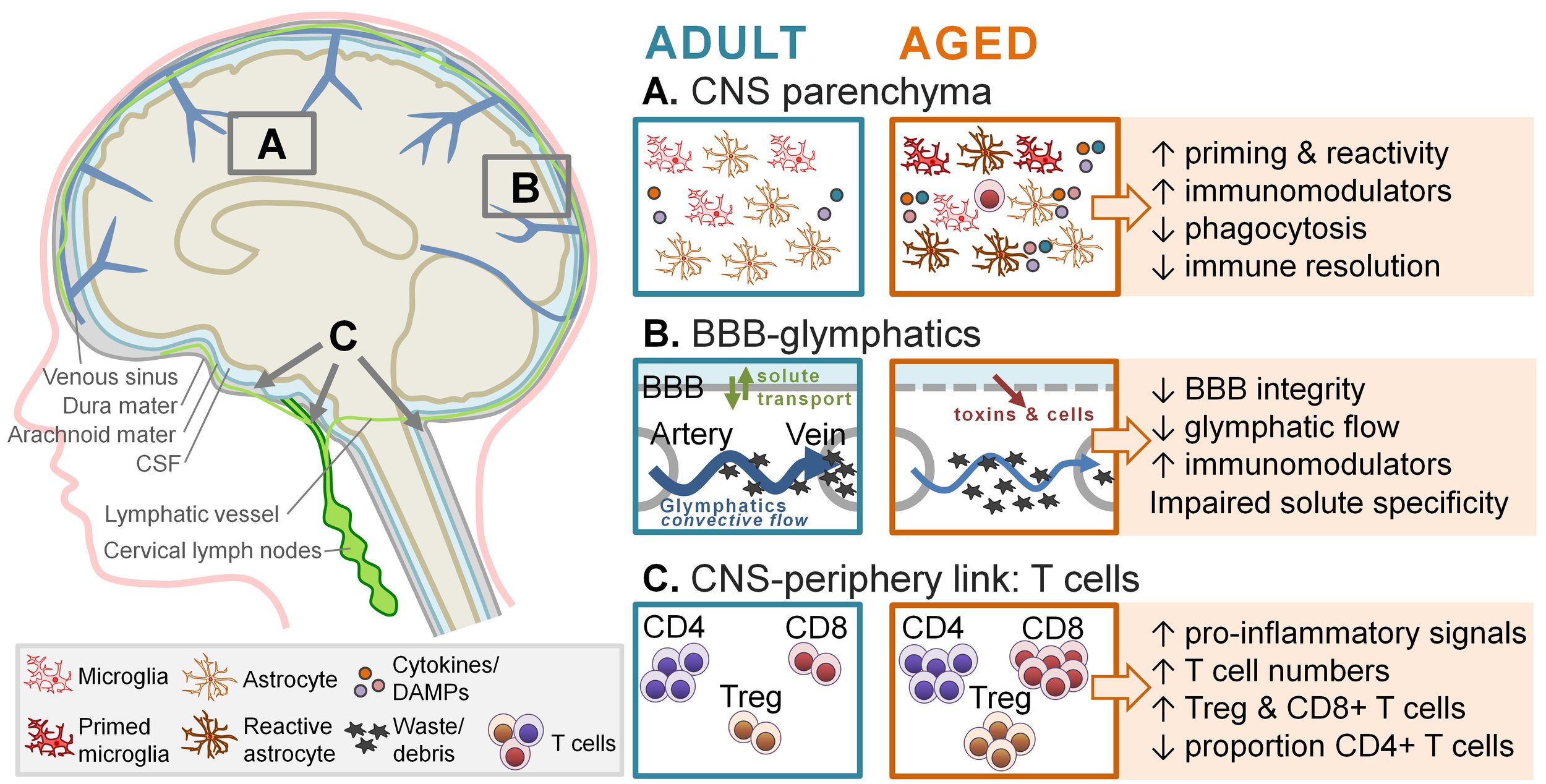How does brain physiology shift in response to aging?
How does the CNS interact with the neuroimmune system, and how does this change with age?
How are these changes beneficial and detrimental?
These are some of the questions addressed by Andrew and long-time collaborator Laura Fonken in their latest review paper, titled “Neuroimmunology of healthy brain aging,” published in Current Opinion in Neurobiology.
Aging is associated with compensatory shifts in CNS physiology and function, which collaborate to increase neuroimmune priming and pro-inflammatory bias.
Timeline of aging and neuroimmunity in humans and mice.
Key points addressed in the review: Aging progressively disrupts homeostatic systems, including neuroimmunity. Neuroimmune responses in the aged brain are sensitized, and include impaired phagocytosis. With age, key neuroimmune-related cells - including microglia, astrocytes, and T cells - develop primed or pro-inflammatory phenotypes. In addition, the aged glymphatic system enables pathological accumulation of danger signals and cytokines. Age-related neuroimmune hyperreactivity has behavioral consequences - e.g., age-related neuroimmune activity predisposes to cognitive decline.

